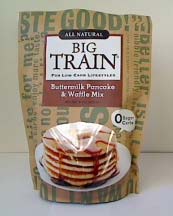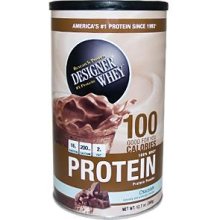One of the biggest issues for people starting out on a low carb diet is trying to find replacements for their usual carb loaded mealtimes. Finding substitutes that won’t leave them feeling hungry later, and fighting cravings for a double chocolate chip muffin or slice of toast and jelly is not as difficult as you would imagine — it just takes a little guidance in the right direction.
Starch-laden, high GI (glycemic index) foods have been populating the world’s breakfast tables for a long time. While it’s true that complex carbohydrates do slowly release energy throughout the day and are a valuable source of fiber, most breakfast cereals available in the supermarket aisles are far-removed from these so-called “good carbs,” and in most cases, add huge amounts of sugar and corn syrup, turning what should be the healthiest meal of the day into one of the least.
Luckily for those wanting to swap to a health-conscientious low carb diet, breakfast is probably one of the easiest meals to make low carb or carb free. Here are a few suggestions for you:
Eggs Make a Perfect Low Carb Breakfast
Eggs are a brilliant and versatile breakfast fare. Bacon & eggs or sausage and eggs are great low carb breakfasts for the weekend when you’re lazing around reading the newspapers and chilling out. A mid-week omelet can be whipped up in a few minutes with ham, cheese or mushrooms for a tasty, hot breakfast. Scrambled with some smoked trout or salmon, boiled or poached, fried over-easy or sunny side up, or hard boiled to eat on the run— eggs are a high protein, low carbohydrate food that offer endless breakfast possibilities.
(And even though we’re concentrating on breakfast in this article, the wonderful thing abut eggs is that they are the most inexpensive protein out there, and can easily substitute for a more expensive, elaborate lunch or dinner any time.)
Low Carb Waffles & Pancakes

Usually pancakes, waffles, and muffins are sugar-loaded and made with over-processed white flour, but there are low carb mixes available that allow you to have your (pan)cake and eat it, too! These are low or sugar free and use wheat gluten and low glycemic corn starch in place of regular wheat flour to provide a low carb but higher protein option to their traditional counterparts.

Breakfast Cereal Can Be Low Carb Too
For those who really want to have cereal-based products for breakfast, there are low carb alternatives available from the over-processed cereal choices found in supermarkets. There are nutritious, low carb granolas, delicious oat-based cereals, and even flax cereals to choose from—healthy low carb breakfast choices that are high in fiber, high in protein, heart-healthy, and free from sugar and wheat. A perfect example is Dixie Diner’s Low Carb Instant Cereal which is a delicious blend of oats and soy and available in five different flavors.
Quick Fix Low Carb Cereal Bars
Quite often though in the course of our busy low carb lives, we don’t have time to chop and peel produce. Nor do we have time to prepare eggs and fry bacon. On occasions we need to be up, showered, and out of the door, and we need something quick and easy that needs no preparation and can be eaten on the run.
Sadly, a drawback of any low carb diet is that preparing meals may often be a bit more elaborate and time-consuming than simply grabbing a burger or slice of pizza.
Sometimes we can be sitting at our desks and feel a bit hungry mid-morning, so need something to carry us through until lunch time. Sugar-laden cereal and candy bars are not the answer for anyone on a low carb diet — but again, healthy low carb alternatives can be found. Granola bars and low carb Atkins Advantage bars that come in a variety of flavors; you can even purge your chocolate cravings with sugar free chocolate without upsetting your low carb diet.
So, as you can see, breakfast really is one of the easiest meals to convert into a low carb meal.
Thanks for reading our article! Did you know that there are many great-tasting low carb food products on the market today that can make sticking to your low carb diet a breeze? Linda’s Diet Delites is a leading online supplier of low carb food products, offering a wide selection at affordable prices. Take a look!
*Michael Nace is a low carb blogger for Linda’s Diet Delites. He is not a Doctor, and his article does not represent the view and opinions of Linda’s Diet Delites, nor are his articles meant to be construed as medical advice.

